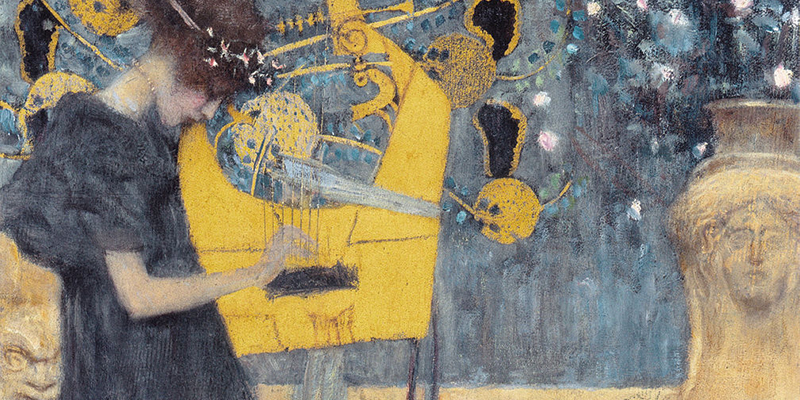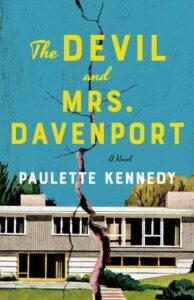When you think of Gothic fiction, the image of a woman in a diaphanous nightgown, running from a sinister house might come to mind. A classic feature of paperback novels from the ‘60s, ‘70s, and ‘80s, these iconic covers convey several things at a glance: fear, sensuality, mystery. Words that, in a nutshell, help define Gothic fiction. Often denigrated as campy pulp fiction, these books and their covers, in my opinion, also serve to highlight the heroine’s agency against overwhelming odds. After all, she is willfully running from the haunted house—a powerful metaphor for patriarchal oppression in the genre. It’s no coincidence that Gothic horror enjoyed a renaissance during the early women’s rights movement, when women were feeling increasingly constrained by their domestic roles—something I explore at length in my upcoming novel, The Devil and Mrs. Davenport. But even with as far as we’ve come, we have a long way to go. With a nod to the traditions of the past, today’s Gothic fiction authors effectively employ the constructs of horror as feminist commentary. The books in this article—seven of them by contemporary authors, one by a classic icon of the genre—all serve to illustrate the dangers of misogyny while centering the power and resilience of all women.
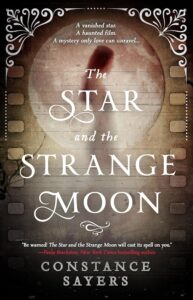
The Star and the Strange Moon by Constance Sayers
When 1960s actress Gemma Turner mysteriously vanishes into the movie she’s filming, she must use her wits to survive the twisted world created by an obsessive auteur on the brink of madness. The dreamlike atmosphere Sayers conjures is reminiscent of Cocteau’s La Belle et la Bête but make no mistake—this is still Gothic horror, and Gemma’s repeated attempts to escape the surrealistic cursed film she’s imprisoned in convey a palpable sense of claustrophobic oppression. A captivating time-slip love story and a powerful celebration of feminine agency.
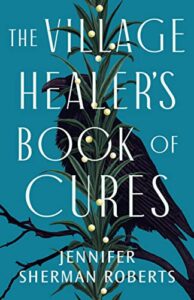
The Village Healer’s Book of Cures by Jennifer Sherman Roberts
In seventeenth-century England, Mary Fawcett refines the healing recipes she’s inherited from generations of women before her to better serve her community…until real-life witchfinder Matthew Hopkins arrives in her small village and the benevolent Mary finds herself under suspicion of witchcraft. In order to save her life and protect those she loves, Mary must use her talents to outsmart the devil himself. A compelling tale of retribution, revenge, and true justice.
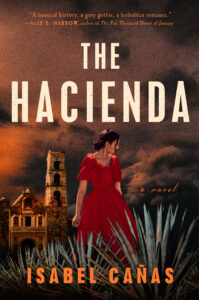
The Hacienda by Isabel Cañas
Following the Mexican War of Independence, Beatriz weds the dashing but distant Don Rodolfo to secure her future and build a new life for her family at his estate in the countryside. But the Hacienda San Isidro is hardly the sanctuary Beatriz imagined. As forces both supernatural and corporeal conspire against her, the once fiercely independent Beatriz faces certain doom unless she can break the sinister curse that binds her to the hacienda. With brilliantly layered subtext centering the evils of colonialism, Cañas’s groundbreaking debut is both timely and timelessly Gothic.
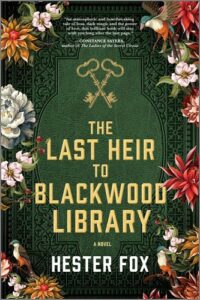
The Last Heir to Blackwood Library by Hester Fox
In post-World War I England, young Ivy Radcliffe unexpectedly inherits an estate on the Yorkshire moors, including a magnificent library containing strange, esoteric texts. But something isn’t right at Blackwood Abbey, and as events grow more sinister, it’s up to Ivy to uncover the library’s mysteries before it’s too late. A tale of the powerless reclaiming their power in the face of patriarchal and historical constraints, this is Hester Fox at her finest.
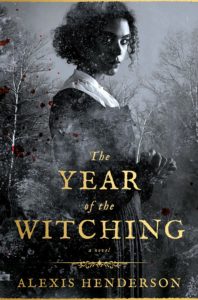
The Year of the Witching by Alexis Henderson
In the land of Bethel, the Prophet’s word is law, leaving women and girls under a heavy mantle of subjugation. Immanuelle Moore, the biracial daughter of a woman rumored to have consorted with witches, must follow Holy Protocol, and lead a life of submission and absolute conformity, like all the other women in the settlement. But when the spirits of four powerful witches bestow a gift on Immanuelle—her mother’s secret diary filled with arcane knowledge and the truth behind Bethel’s founding—she realizes her true calling. If Bethel is to change, it must begin with her. This novel is a visceral treatise on the dangers of unbridled religious control, racism, and misogyny with a strong, unforgettable heroine.
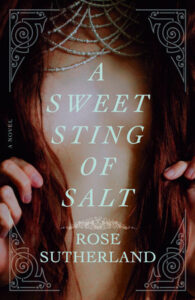
A Sweet Sting of Salt by Rose Sutherland
When village midwife Jean discovers a laboring mother outside her cabin one dark and stormy night, she falls into a web of dark secrets centering on her neighbor and his mysterious new wife in this sapphic retelling of The Selkie Wife folktale. While charming Muirin claims to be happy with her husband, Jean can’t overlook the fear in her new friend’s eyes. Her growing concern—and growing feelings—for Muirin means she can’t set her worries aside. But when the answers she’s seeking are more harrowing than she ever could have imagined, Jean finds herself in peril as she strives to save the woman she loves.
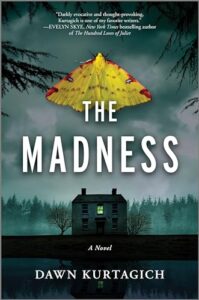
The Madness by Dawn Kurtagich
In this upcoming Dracula retelling set on the modern, windswept coast of Wales, Mina Murray at last gains the voice and agency she deserved in the original story. With her friend Lucy’s life on the line, Mina finds herself asking questions and being drawn ever deeper into a web of secrets, missing girls, and the powerful, nameless force that has been haunting her for years. As terrible, ancient truths begin to reveal themselves, Mina must confront her own darkest secrets, and with them, an evil beyond comprehension. The mental health representation in this novel is second to none—and the unity of women working together to defeat a truly monstrous enemy is inspiring.
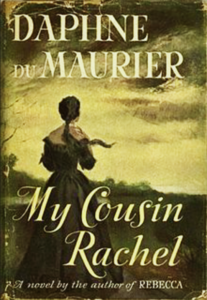
My Cousin Rachel by Daphne du Maurier
While this novel may seem an unlikely pairing with the others on this list, it’s my favorite by Du Maurier because it shines a subversive yet unflinching light on the dangers of misogyny. The unfortunate Rachel suffers under the weight of patriarchal objectification and the suspicion of every male character within the novel, but none more so than the callow narrator, Philip, who is besotted with the mysterious Rachel until she fails to meet his narcissistic expectations. When Rachel refuses to marry him, he dispenses with her, quite literally, in favor of his loyal childhood friend, Louise, who he once scathingly disdained as provincial. Du Maurier was writing about incel culture, the male gaze, slut-shaming, and toxic nice guys way before the terms ever existed. While Rebecca is an undeniable masterpiece, Rachel has as much social relevance today as it did when Du Maurier penned it.
***

